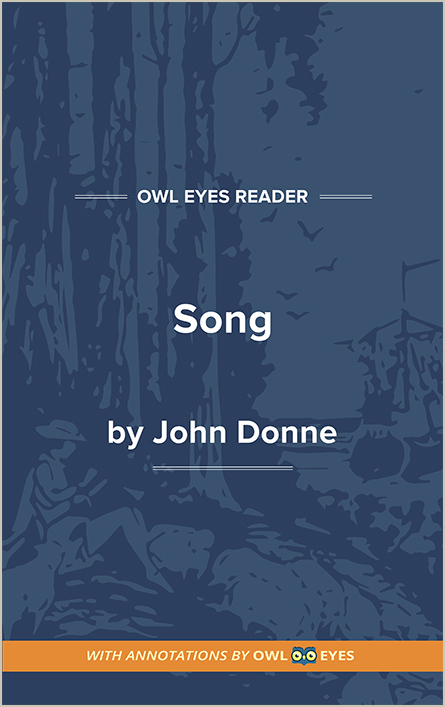"False, ere I come, to two, or three.
..."
See in text (Song)
The speaker claims that even if his audience could find an honest woman, by the time he learned about the woman, she would have betrayed her honesty with two or three other men. This is the final point to the speaker’s misogynistic tirade against women. Not only does he compare honest women to mythological creatures, but also the speaker claims that they are so fickle that they cannot maintain their purity for even the short time it takes to walk next door. Each stanz works to hyperbolically reinforce the speaker’s violent distrust of women. While in Donne’s time this sentiment would have been accepted as humorous or true, this claim should shock modern readers and encourage them to see a distrustful narrator in these lines, rather than a devious woman.
Caitlin, Owl Eyes Staff

